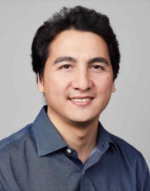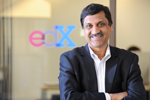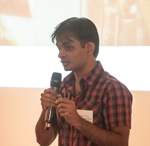Keynotes + Lightning Speakers
Keynotes
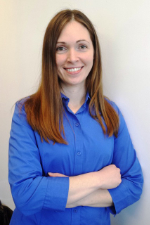
Kerrie Douglas
(Assistant Professor, Purdue University, USA)
When the Means Don’t Mean Anything: Findings Insights through Contextualized Evaluation Metrics
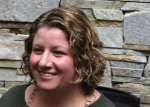
Kristina Wilson
(Learning Developer, Fox Valley Technical College System, USA)

Bonnie Tomlin
(Learning Developer, Fox Valley Technical College System, USA)
Basic Computer Skills Course MOOC – Creating a MOOC from the Ground Up
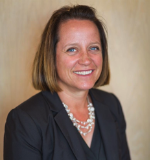
K. Holly Shiflett, PhD
(Director, North American Partnerships, FutureLearn, USA/UK)
The need for continuous learning and the role of microcredentials
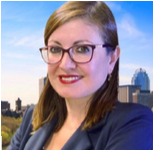
Carina S. González
(Assistant Professor, Universidad de La Laguna/Open University of Catalonia, Spain)
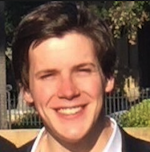
Miguel Amigot
(Chief Technology Officer, IBL Education, USA)
Lightning Speakers
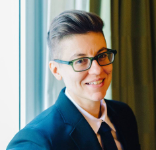
Maria Janelli
(Senior Manager of Online Teacher Education Programs, American Museum of Natural History, USA)
Effects of Pre-tests and Feedback on Performance and Persistence in MOOCs
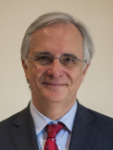
Carlos Delgado Kloos
(Vice President, UC3M)
MOOCs for Development: Experience from the MOOC-Maker and COMPETEN-SEA Projects
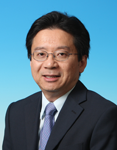
Ting-Chuen Pong
(Professor, Hong Kong University of Science and Technology)
Using MOOCs and Experiential Learning for Competency Development
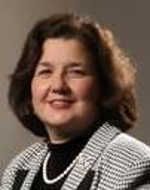
Maria M. Larrondo-Petri
(LACCEI Executive Director and Professor, Florida Atlantic University, USA)
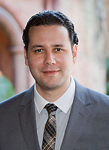
Rocael Hernández Rizzardini
(Director Galileo Educational System, Universidad Galileo)
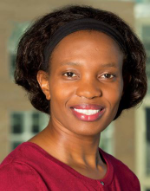
Wilkistar Otieno
(Associate Professor and Chair of the Industrial and Manufacturing Engineering, and Chair of IEEE Milwaukee Section)
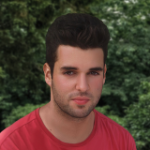
Manoel Cortes
(MOOC Report, Class Central)
Industry/Academy Impact of the ClassCentral Report
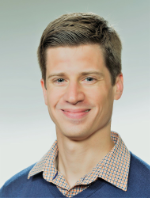
John Kotwicki
(OnLine Learning Program Manager, MathWorks, USA)
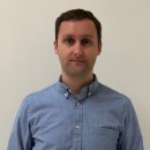
Isaac Bruss
(OnLine Learning Program, MathWorks, USA)
Collaborating with industry partners with the video creation process (preliminary)
Kerrie Douglas
Assistant Professor, Purdue University, USA
When the Means Don’t Mean Anything: Findings Insights through Contextualized Evaluation Metrics
While open online courses bring tremendous opportunity for improving education at a global level, current evaluation practices provide little information about the quality of the learning opportunity and what learners are actually able to know and do as a result. Despite much conversation concerning the insufficient information provided by traditional educational evaluation metrics for MOOC environments, there has been little discussion about what metrics should be used for evaluation. Whether talking about a particular MOOC, a portfolio of MOOCs, a progression of MOOCs for formal certification, or otherwise- the problem is that with MOOCs being used for multiple educational goals by diverse learners, understanding the quality and outcomes is a real challenge. It is understood that MOOC learners are quite diverse on multiple dimensions, however, the most commonly reported evaluation outcomes remain learner demographics, access, overall course satisfaction and percentages of pass/fail. Metrics such as access and engagement speak to the degree that a course was popular, but it does not give any indication of the value of the learning opportunity. Speaking of open education resources broadly, UNESCO’s 2015 Education 2030 report states, “Access is not enough; we need a new focus on the quality of education and the relevance of learning and on what children, youth and adults are actually learning” (UNESCO, 2015, p. 4).
The quality of any educational resource is determined by characteristics of the resource and characteristics of the learners who interact with it. Authentic evaluation is based on collecting evidence that speaks to the stakeholders’ needs and values. Thus, the value of a MOOC is determined by the many stakeholders (e.g., MOOC platforms, institutions, instructors, etc.) invested in its’ success or who have significant interest. In order to determine what evaluation metrics are meaningful and what ‘high-quality’ means for MOOCs, our team has undertaken several studies to understand needs of MOOC stakeholders, learners, patterns of learning behavior both in instructor-led and archived-mode of course offerings, and end-of course evaluations from more than 800 MOOC offerings. By contextualizing learner reported motivation, their behaviors, and learning outcomes, we are able to report more meaningful information about what groups of learners are achieving and what they value (and wish were different) about the learning opportunity.
The purpose of this keynote is to present our team’s research findings from learning analytics, machine learning, and survey research that capture insights into how contextualized evaluation metrics provide more useful information than looking at mean-level outcomes. In addition, implications for the findings to future development of MOOCs will be discussed.
The Speaker
Dr. Kerrie A. Douglas is an Assistant Professor of Engineering Education at Purdue University. Her research group, Science and Ethics of Educational Data (SEED) seeks to advance holistic and ethical approaches to validation and inference of student learning, particularly for diverse minority learners. This research focus includes methods to determine criteria for evaluation of MOOCs. She studies how to combine multiple sources and types of data to provide a deeper assessment of learners and understanding of groups of learners. In 2018, she won the IEEE Frontiers in Education New Faculty Fellow Award.
Zachary A. Pardos
Assistant Professor, UC Berkeley, USA
A More Adaptive Future for MOOCs
Imagine a world in which every course was designed specifically for you. We are not there yet, but I will show examples of fundamental technology that has already been used to make this future not as inconceivable as it sounds.
Users of MOOCs are often far more varied in demographics and preparation than the students their on-campus counterparts were designed for. While not practical for instructional staff to manually tailor numerous course variations, learning analytics can serve as a scalable mechanism for making progress towards better personalization of a course to its online audience. In this talk, I will share several pilots where big data and adaptive technology have been used to augment the adaptive capabilities of a MOOC platform. One pilot, called the "Communicator," helped scale instructor communication by displaying daily updated engagement levels of users and allowing messages based on these levels and other course activity to be immediately tailored and sent by the instructor. Another pilot demonstrated an experimentally implemented framework for real-time course page recommendation in an edX course based on a user's course interaction history. The recommendations were intended to reduce the time it took a user to find the review material they were looking for. I will end the talk by highlighting the strides being made on university campuses to develop and deploy personalized and adaptive student success systems and how similar approaches might be adopted by online course platforms to deliver bespoke pathways to learning for critical workforce needs ahead.
The Speaker
Zachary Pardos, Assistant Professor at UC Berkeley, is a leading learning scientist and an internationally recognized expert in educational data mining and learning analytics. He earned his PhD in Computer Science at Worcester Polytechnic Institute, where he worked with K-12 educators and students to integrate educational technology into the curriculum as a formative assessment tool. He holds several academic leadership positions in the learning analytics community, including posts as an editorial board member for two of its journals (JEDM and IJAIED). He has published over 50 peer-reviewed articles on topics covering cognitive mastery assessment, adaptive platform engineering, and recommender systems in higher ed. As a faculty member in the Graduate School of Education and Information at Cal, he teaches courses on data mining, machine learning, and the history of digital learning platforms and directs the AskOski course recommendation system project. Prior to UC Berkeley, he was a postdoctoral fellow at MIT applying intelligent tutoring system paradigms to MOOCs.
Twitter: @zpardos
Kristina Wilson and Bonnie Tomlin
Learning Developers, Fox Valley Technical College System, USA
Basic Computer Skills Course MOOC – Creating a MOOC from the Ground Up
Have you ever wondered what it takes to create a MOOC? Or what is involved in the process? Or even how long it takes? Come join us as we share our journey of creating the Basic Computer Skills MOOC for the Wisconsin Technical College System that’s been accessed over 400,000 times.
In this session, you’ll hear why we wanted to create this course, how we got started, what our content creation process looked like, how we launched the course, and how people are using it today. We’ll also share what we’ve learned along the way including stumbling points, lessons learned, and unexpected successes. We’ll also share learners’ experiences with the course including how it’s being used both domestically and internationally. Finally, we’ll talk about where we’re headed next and how this first experience has led to new opportunities. We’ll also give you a sneak peek at our next series of MOOC courses.
You’ll leave the session with a better understanding of what it takes to create and launch a MOOC. You may also leave with some tips and tricks to make your own MOOC journey easier. Finally, we’ll leave some time for you to try our course and ask us any questions about the Basic Computer Skills MOOC.
The Speakers
Kristina Wilson is the Learning and Development Designer for Learning Innovations at Fox Valley Technical College. She brings over 10 years of experience in designing, writing, and editing training materials to each eLearning, game, or MOOC project.
In her current role, she helps instructors and private industry teams determine training/learning needs, write engaging and learner-focused content, and verify training effectiveness.
Kris has a bachelor’s degree in Professional Communications and Emerging Media from UW Stout and has presented at conferences for the National Communication Association, the eLearning Guild, the Wisconsin Library Services, and the Correctional Education Association.
Bonnie is a Learning Innovations multimedia developer. She has been creating learning objects and training materials for the past ten years.
Bonnie has a passion for building creative, flexible, user-focused learning. She collaborates with instructors, editors, and SMEs to create interactive learning objects. Bonnie always has the learner in mind while she is developing and testing materials. She accommodates users with different learning styles and create e-learning materials connect with learners immediate needs.
At home, Bonnie enjoys spending time with her nephews and her dog Badger.
K. Holly Shiflett, PhD
Director, North American Partnerships, FutureLearn, USA/UK
The need for continuous learning and the role of microcredentials
Higher education is experiencing revolutionary change on a global scale. Student attitudes and expectations are evolving as digital technology advances and the HE world becomes more commercial. Real world skill requirements have evolved quickly and employers are inventing their own alliances for workforce training and development in an attempt to fill this gap. Gone are jobs for life and requirements for graduate degrees, replaced by the gig economy, a focus on digital skills, artificial intelligence and the threat of automation. Tomorrow’s workers will demonstrate proficiency of high demand skills in non-traditional ways and innovators are creating connections between HE and business demand, so how do MOOCs move to meet this?
Microcredentials are one potential answer, however a lack of consistency and a diverse set of naming conventions currently makes the educational value difficult to understand. To address this, FutureLearn has collaborated with the European MOOC Consortium to define microcredentials as small, stackable, credit-bearing units of study that are 100-150 hours of student effort. By creating a shared understanding, FutureLearn aims to provide some order and meaning to the term. Their ultimate view is that both students and employers will have a way to allow and recognize forms of learning that are presented in non-traditional ways.
In this session, Holly Shiflett, PhD, Director of North American Partnerships at FutureLearn, discusses the trends impacting universities today, asks what this means for the higher education sector and explores the role MOOCs play in the development of microcredentials.
About FutureLearn
FutureLearn is a leading social learning platform formed in December 2012 by The Open University and is now jointly owned by The Open University and The SEEK Group. FutureLearn has over nine million people signed up worldwide. FutureLearn uses design, technology and partnerships to create enjoyable, credible and flexible online courses as well as undergraduate and postgraduate degrees that improve working lives. It partners with over a quarter of the world’s top universities, as well as organisations such as Accenture, the British Council, CIPD, Raspberry Pi and Health Education England (HEE). It’s also involved in government-backed initiatives to address skills gaps such as The Institute of Coding and the National Centre for Computing Education.
The Speaker
Holly Shiflett joined FutureLearn in April 2019 bringing with her an extensive background in international online education strategy and implementation across a variety of higher education sectors. Her role at FutureLearn provides strategy and support for existing partnerships in North America. Additionally, a key goal is identifying new opportunities to support global development for North American institutions and build FutureLearn’s presence in the region.
Prior to joining FutureLearn, Holly worked at Wiley Education Services, a provider of Online Program Management Services leading online education partnerships in the UK and Europe including the University of Birmingham, the University of Bath, the University of Glasgow in the UK and Vlerick Business School in Belgium. Similarly, at the University of Pittsburgh (Pitt), Holly initiated the institution’s first fully online programs and implemented university wide support services for students. The Middle State Commission on Higher Education awarded Pitt with a series of 2 commendations for this collaborative work. Holly started her eLearning career at eCollege, one of the first Learning Management Systems, where she held a variety of leadership roles.
Holly has a PhD in Higher Education Management from the University of Pittsburgh, an MA in Integrated Marketing Communication from the University of Colorado at Boulder and a BA in Communication Arts from Salisbury University in Maryland. Holly lives in San Diego, California, USA.
Carina S. González
Assistant Professor, Universidad de La Laguna/Open University of Catalonia, Spain
Gamification and Fun in MOOCs
There are currently a large number of MOOCs courses offered by different providers, such as MiriadaX, Coursera and edX, which are formed through independent elements (TEDx-style talks, digital textbooks or educational television programs), and where each of these elements has been designed and developed by teachers, as part of a series of videos with digital content. However, the ideal model is that MOOCs involve collaborative processes in which both teachers and students can participate in the design and thus use more effectivelythese courses. Inthis sense, there are different challenges in the creation of more motivating courses. One of them is the challenge of incorporating motivational aspects in the design, because they are very important to avoid the abandonment of the courses and, also infavoring the learning process. At this point, considering some gamification techniques to promoting effective learning can be a determining factor. Thus, this presentation includes aspects of collaboration and gamification techniques in the planning, design, implementation and use of MOOCs.
MOOCs, Gender and Diversity
Lack of diversity and gender inequality are global problems in different sectors, but they are especially latent in the context of the fields of Science, Technology, Engineering and Mathematics (STEM), at the university level and, therefore, labor market. Attracting representative people from all sectors of society, different cultures, disabilities, ethnic groups, gender or sexual orientation is one of the objectives that can be found in the strategic plans not only of large companies but also of organizations, institutions and governments. In this sense, MOOCs opens the possibilities for education in the diversity, offering flexibility and a new format to access to the specialized labor marked. Educational institutions also, should design courses taking into account this diversity, creating a new approach to in their traditional way to instructional design, in order to attract, motivate and make accessible the courses to everyone. This sessionpresent different courses and experiences designed for promoting the diversity and equality in education focusing on the STEM area.
The Speaker
Dr. Carina González is Associate Professor at the Department of Computer Engineering and Systems in the University of La Laguna, and is also Professor at Open University of Catalonia, Spain. She got her PhD in Computer Science, specialized in AI and HCI techniques applied to people with disabilities. For over 20 years she has put her focus in the field of the technologies applied to education and human computer interaction (intelligent tutoring systems, intelligent interfaces, human centered design, UX, serious games, gamification, elearning, digital culture). She has published widely on these topics.
She has been the head of the Educational Innovation and ICT and the Digital Education Service at ULL, creating this service for the University from scratch (2005-2011; 2015-2019). Also, she has been responsible for the creation and implementation of the ULLMEDIA, the Center for Digital Content Production at the University of La Laguna, OCW platform, CampusMOOC (based in Open edX), CampusMedia (based in Kaltura) among other elearning platforms. She serves on the boards of AIPO (Association Human-Computer Interaction) and ADIE (Association for the Development of Computer Education), president of the RUCV (Association University Virtual Campuses Network), as well as various academic committees, publishers and national and international academic conferences. She has been the academic director of several online postgraduate studies, including the Master Online in Creation of Video Games (ULL-UOC) or the 3D Design Expert and the Use of ICT for Hospital Classrooms, or professor of several MOOC courses such as Artificial Intelligence in Education or Hospital Classrooms and ICT. She has been working on gender and ICT, promoting the inclusion of women in STEAM studies and professions since 2009. She collaborates with GENTIC research group from Open University of Catalunya (UOC). She is member of the Institute of the Women Studies (IUEM-ULL) and the interuniversity PhD program in Gender Studies. She organized different related events such as Engendering Technologies (2014, 2015, 2016, 2019) among other activities.
She was co-chair of the conference IEEE EDUCON 2018 (Engineering Education Conference)organized by IEEE education Society among other international conferences. She is Associate Editor of the IEEE Transactions on Education and edited several special issues of IEEE-RITA (Revista Iberoamericana de Tecnologías del Aprendizaje) of Spanish Chapter of the IEEE Education Society. Also, she is Senior member of IEEE.
Miguel Amigot
Chief Technology Officer, IBL Education, USA
Data and AI-Driven Learning with the IBL Platform
A data and artificial intelligence-based learning strategy with descriptive and predictive analytics is fundamental for learners, educators and stakeholders. The purpose of this talk is to dive into the open source technical architecture and implementation that makes it possible.
Namely, a data pipeline that encompasses an extensive collection of personalized events, modular data processors, a scalable data warehouse and an accessible API suite.
The Speaker
As a computer scientist and electrical engineer, Miguel Amigot is the Chief Technology Officer at IBL Education in New York. He leads the Open edX-based learning ecosystems at NVIDIA, IBM, Cisco, Docker, SUNY, Global Knowledge and many more, reaching millions of learners.
Anant Agarwal
CEO edX
A Fireside Conversation around MOOCs
Summary available soon.
The Speaker
Anant Agarwal is the CEO of edX, an online learning destination founded by Harvard and MIT. Anant taught the first edX course on circuits and electronics from MIT, which drew 155,000 students from 162 countries. He has served as the director of CSAIL, MIT's Computer Science and Artificial Intelligence Laboratory, and is a professor of electrical engineering and computer science at MIT. He is a successful serial entrepreneur, having co-founded several companies including Tilera Corporation, which created the Tile multicore processor, and Virtual Machine Works.
Anant won the Maurice Wilkes prize for computer architecture, and MIT's Smullin and Jamieson prizes for teaching. He is also the 2016 recipient of the Harold W. McGraw, Jr. Prize for Higher Education, which recognized his work in advancing the MOOC movement. Additionally, he is a recipient of the Padma Shri award from the President of India. He holds a Guinness World Record for the largest microphone array, and is an author of the textbook "Foundations of Analog and Digital Electronic Circuits."
Scientific American selected his work on organic computing as one of 10 World- Changing Ideas in 2011, and he was named in Forbes' list of top 15 education innovators in 2012. Anant, a pioneer in computer architecture, is a member of the National Academy of Engineering, a fellow of the American Academy of Arts and Sciences, and a fellow of the ACM.
He hacks on WebSim, an online circuits laboratory, in his spare time. Anant holds a Ph.D. from Stanford and a bachelor's from IIT Madras. Anant's twitter handle is @agarwaledu.
Maria Janelli
Senior Manager of Online Teacher Education Programs, American Museum of Natural History, USA
Effects of Pre-tests and Feedback on Performance and Persistence in MOOCs
Maria Janelli recently conducted an experimental study that examined the effects of pre-testing with and without feedback on learning outcomes, persistence, and completion in a five-week massive open online science course (MOOC). The participants were randomly assigned to one of four conditions. Learners in the three treatments groups took module-level pre-tests with varying types of feedback. Learners in the three treatment groups and the control group took module-level post-tests. Results of this study indicated that: (1) pre-tests with and without feedback did not affect learning outcomes among all course participants; (2) the presence of pre-tests significantly and negatively affected persistence and completion, deterring some participants from progressing through the course; (3) among those who did complete the course, pre-tests led to better learning outcomes; and (4) there was a positive effect of persistence (module completion) on learning outcomes for those who took pre-tests.
At the 2019 LWMOOCs conference, Janelli will share (a) these outcomes and the potential reasons for which they occurred; (b) the practical implications of the findings; and (c) ways in which the study can be used for future research.
The Speaker
Maria Janelli is the senior manager of online teacher education programs at the American Museum of Natural History. She has spent her career designing, implementing, and researching e-learning applications at some of New York City's most renowned cultural and educational institutions. Janelli holds a BA in English literature from Saint Peter's University; an MA in English literature from Rutgers University; an MA in cultural anthropology from Columbia University; and a PhD in educational psychology from the City University of New York. Her research examines the effects of pre-tests and feedback types on learning outcomes in informal adult online education.
Dhawal himself has completed over a dozen MOOCs and has written over 200 articles on MOOCs, read by millions of people every year. Dhawal is a columnist for EdSurge and has written for publications including Techcrunch, VentureBeat, Quarz, and Observer.
Dhawal Shah
CEO, Class Central
A Product at Every Price: Overview of MOOC Monetization Models
Summary available soon.
The Speaker
Dhawal's life changed when he got accepted into the Masters in Computer Science at Georgia Tech. For the first time, he realized that quality education can be life-changing. But two years weren't enough to overcome two decades of mediocre education. So when free online courses from top universities started popping up, Dhawal got excited and built a one-page site to keep track of these courses. That site, Class Central, is now the leading destination for finding MOOCs as well as understanding what is happening in the world of MOOCs. Since 2011, around 15 million learners have used Class Central to decide which online course to take.
Dhawal himself has completed over a dozen MOOCs and has written over 200 articles on MOOCs, read by millions of people every year. Dhawal is a columnist for EdSurge and has written for publications including Techcrunch, VentureBeat, Quarz, and Observer.
Carlos Delgado Kloos
Vice President, UC3M
MOOCs for Development: Experience from the MOOC-Maker and COMPETEN-SEA Projects
The fact that most MOOCs learners are educated people from developed countries does not mean that MOOC are not useful in developing contexts. In fact they are useful and they are used. This talk will report on two recent projects funded by the European Commission. One is the MOOC-Maker project with Latin America and the other one COMPETEN-SEA in South East Asia. The talk will report on the opportunities and challenges in carrying out MOOC education in these regions.
The Speaker
Carlos Delgado Kloos received the Ph.D. degree in Computer Science from the Technische Universität München and in Telecommunications Engineering from the Universidad Politécnica de Madrid. He is Full Professor of Telematics Engineering at the Universidad Carlos III de Madrid, where he is the Director of the GAST research group, Director of the UNESCO Chair on “Scalable Digital Education for All”, and Vice President for Strategy and Digital Education. He is also the Coordinator of the eMadrid research network on Educational Technology in the Region of Madrid and Senior Member of IEEE. He has been the Manager of ICT research projects at the Spanish Ministry and has carried out research stays at several universities such as Harvard, MIT, Munich, and Passau. He has been involved in a large number of research projects and published over 400 articles in conferences and journals. He has coordinated several MOOCs (on edX and MiríadaX).
Ting-Chuen Pong
Professor, Hong Kong University of Science and Technology
Using MOOCs and Experiential Learning for Competency Development
Employers nowadays look for talents who excel not only in academic disciplines but also other competencies including creativity, critical thinking, communication and collaboration, which are often referred to as the 4Cs and are considered important competencies for the 21st century workforce. However, there is no agreed approach on how to effectively nurture students with such competencies.
In this talk, I will present a cornerstone engineering design project course designed specifically for engineering students. This course aims at providing engineering students exposure to knowledge and skills in different engineering disciplines. Some fundamental engineering concepts will be delivered through online learning in the form of MOOCs. After students completed the online modules, they will be divided into project teams and apply the acquired knowledge and skills to design and build engineering artifacts through experiential learning. Similar approach has also been applied to K-12 students. I will discuss how such a blended project-based experiential learning approach could be used in developing students’ 21st century competencies.
The Speaker
Professor Ting-Chuen Pong is a Senior Advisor to the Provost, Acting Director of the Center for Education Innovation and Professor of Computer Science & Engineering at the Hong Kong University of Science & Technology (HKUST). He is a founding faculty member of HKUST, where he had served as Acting Provost, Associate Vice-President for Academic Affairs, Director of the Center for Engineering Education Innovation and Associate Dean of Engineering. He was an Academic Research Advisor for the Hong Kong University Grants Committee (UGC) from 2010 to 2012. He is currently a member of the Quality Assurance Council of the UGC and Chairman of the Qualifications and Accreditation Committee of the Hong Kong Council for accreditation of Academic and Vocational Qualifications. Before joining HKUST, he was an Associate Professor of Computer Science at the University of Minnesota. He received his PhD in Computer Science from Virginia Polytechnic Institute and State University in 1984. Professor Pong's research interests include computer vision, multimedia computing and IT in Education.
He is a recipient the HKUST Excellence in Teaching Innovation Award in 2001. In 2014, he led the HKUST team in the Wharton-QS Stars Awards Competition and was selected Winner of the Natural Sciences Award and Runner-up of the Hybrid Learning Award.
Maria M. Larrondo-Petrie
LACCEI Executive Director and Professor, Florida Atlantic University, USA
Smart Adaptive Remote and Online Lab Infrastructure Initiative: A Model of International Cooperation between Academia, Government, Non-Profit Organizations, Professional Societies and Industry
The Ministers of Science and Technology of the 35 countries members of the Organization of American States created an hemispheric collaboration initiative, called Engineering for the Americas, which now forms part of one of their four working groups, Working Group 2: Human Resources Capacity Building. The working group is led by the Ministry of Science and Technology of Argentina and composed of individuals representing government, academic, non-profit organizations, professional societies and industry. One of the Engineering for the America’s initiatives is the development of a hemispheric infrastructure to support access to low-cost remote and online laboratories for Engineering courses. The not-for-profit Latin American and Caribbean Consortium of Engineering Institution (LACCEI) and Florida Atlantic University (FAU) lead the initiative and are collaborating with the Education Society of the Institute of Electrical and Electronics Engineers (IEEE) in developing the IEEE 1876 Standard for Networked Smart Learning Objects for Online Laboratories. Additionally, LACCEI and FAU participate as members of the IEEE Industry Connections Industry Consortium on Learning Engineering, (ICICLE), comprised of more than 50 organizations in industry, government and academia with a common goal of supporting the development of ‘learning engineering’ as a profession and an academic disciple. Progress has been made: the IEEE 1876 Standard was approved and the prototype infrastructure developed by LACCEI at FAU complies with the standard, remote and online labs have been developed to serve as proof of concept, and a mobile lab a set of 6 remote labs that support the Introduction to Logic Design course at FAU are being tested with both an online section and a live lecture section of the course this semester, and will be scaled for access by the universities member of the LACCEI Consortium by lab federation across the consortium members by next year.
The Speaker
Dr. Maria M. Larrondo Petrie is a Computer Engineering Professor at Florida Atlantic University. She is Executive Director of the non-profit Latin American and Caribbean Consortium of Engineering Institutions (LACCEI) and Director of the Organization of American States (OAS) Center of Excellence of Engineering for the Americas. She serves on boards of the Education Society of the Institute of Electrical and Electronics Engineers (IEEE), the Ibero-American Engineering Education Association (ASIBEI), and the International Division of the American Society of Engineering Education (ASEE) and organizes the annual OAS Summit of Engineering for the Americas. She has been awarded the Global Engineering Educator Award by Global Engineering Deans Council, the title of ING PAED honoris causa by International Engineering Pedagogy Society (IGIP), and inducted into the Pan-American Academy of Engineering. She has served in the past as Vice President of the International Federation of Engineering Education Societies (IFEES), and as President of the Upsilon Pi Epsilon International Honor Society for the Information and Computing Disciplines. She currently serves on the OAS Ministers of Science and Technology Working Group 2: Human Resources Capacity Building; on IEEE Global Committee on Accreditation Activities; on the Working Group for IEEE 1876 Standard for Networked Smart Learning Objects for Online Laboratories; on the Educational Committee of the Pan American Federation of Engineering Societies (UPADI); and on the Educational Committee of the World Federation of Engineering Organizations (WFEO).
Rocael Hernández Rizzardini
Director Galileo Educational System, Universidad Galileo
Next Decade Challenges and the role of MOOCs
The next decade (years 2020-2030) will represent several challenges for the humanity at large. From enviromental challenges, to energy supply, continuos growth of worldwide population, a new industrial revolution lead by artificial intelligence and robotics, massive automation, massive loss of jobs with a expansion of new professions for a digital world. Going through political and economical turmoil, balance of powers in the world, and fake news. Several challenges for the humanity at large.
How does education is prepared to this? And what are some of the driving forces that will make education to change? We will review several initiatives from leaders worldwide, and will try to give some light on how MOOCs fit on the next decade's landscape.
The Speaker
Rocael Hernández Rizzardini received the Ph.D. degree in Computer Science from the Graz University of Technology, Austria. Currently, he is the Director of the Von Neumann Institute and Director of the GES Department at Galileo University, Guatemala.
Rocael is an academic and scientific researcher in computer science, interoperability of systems, web technologies and virtual education. He has worked as a consultant and director of international e-Learning and Web Technologies projects, with extensive experience in projects in various countries in Latin America, the United States and Europe. Professor of the Master in Management and Production of e-Learning at Galileo University.
He is leading the Galileo University project at edX.org, titled GalileoX. Rocael has led the production of more than 40 successful courses at edX with more than 500,000 students enrolled in the different cohorts. He is an active participant in the MOOC movement with several publications and conferences organization. With his valuable networking, Rocael is helping to re-configuring the higher education environment with innovative modular solutions using the microcredits model as edX MicroMasters or edX Professional Certificates. Rocael is also partner a Viaro Networks, a software development company serving customers worldwide, leading engineering teams to develop the next wave of apps for several leading software products.
Wilkistar Otieno
Associate Professor and Chair of the Industrial and Manufacturing Engineering, and Chair of IEEE Milwaukee Section
Could Gender and Diversity Representation be a Factor in the Universities and Colleges Ranking Systems in the US?
There are more than 20 Universities and Colleges ranking systems in the USA. Though their appropriateness, accuracy and interpretation are still under debate, few of them include the factor of gender diversity, equity and inclusion in calculating the rankings. This session will enable a discussion of the potential and impact of including this timely and relevant factor in the rankings.
The Speaker
Dr. Wilkistar Otieno is an Associate Professor and Chair of the Industrial and Manufacturing Engineering Department at the University of Wisconsin-Milwaukee. She also serves as the PI of the NSF S-STEM PECS program at UWM’s College of Engineering and Applied Sciences and has been the advisor for UWM’s SWE chapter since 2011. Her research areas include sustainable manufacturing, particularly remanufacturing and data analytics for manufacturing process solutions, and has co-authored several publications in these areas. She is currently the Chair of IEEE-Milwaukee section and is also the Associate Editor of IEEE-Reliability and Maintainability Conference Proceedings.
Manoel Cortes
MOOC Report, Class Central
Industry/Academy Impact of the ClassCentral Report
Summary availiable soon.
From the Experiences as Learner to MOOCs Future
Summary availiable soon.
The Speaker
Manoel is a software engineer at Class Central, the leading destination for finding and reviewing online courses. And he writes for MOOC Report, Class Central’s web publication dedicated to online education news and analysis, where he draws from his own background as an e-learner to communicate effectively about MOOCs.
Manoel's entire higher education has been online. He completed his online bachelor's degree in computing with the Open University, UK. And he’s studying toward an online master’s degree in computer science with Georgia Tech, specializing in machine learning. For good measure, he also enjoys taking MOOCs on a wide variety of subjects in his free time.
John Kotwicki and Isaac Bruss
OnLine Learning Program, MathWorks, USA
Collaborating with Industry Partners through the Video Creation Process
As online courses increasingly target working professionals, the need for strong collaboration with industry partners has become greater. Learners want to engage with real-world applications and industry offers insight into in-demand career skills. Developing effective course material for this audience requires a strong collaboration model between industry and university course teams. This session will cover a video creation process developed by MathWorks for supporting course teams incorporating MATLAB, a leading computational package for engineering and science applications. Highlighted are the analysis and placement of content, as well as the methodologies for evaluating content and evolving it as applications change.
The Speakers
John Kotwicki manages the Online Learning program at MathWorks. In his 15-year tenure at MathWorks, he has led the design, development, and delivery of learning programs for technical audiences using MATLAB and Simulink. John holds an MS in computer engineering from Case Western Reserve University.
Isaac Bruss, Ph.D. is an online content developer at MathWorks. He received his Ph.D. in Polymer Science and Engineering at UMass Amherst, and continued his research and teaching at the University of Michigan, Hampshire College, and Harvard University.
Manuel Castro
Professor, IEEE Division VI Director & UNED
New Practical Competences in MOOCs
MOOCs phenomenon introduces a new philosophy in educational models, regardless of users/students motivation when enrolling (lifelong learning, educational support, interest in new educational areas, etc.), MOOCs expand the ways of reaching knowledge. Flexibility is one of the key aspects of this new educational methodology. This flexibility has to be expanded/translated to all the aspects/features of the course. For educational institutions, traditional approaches must be left behind when designing courses and must provide a new approach to educational process. These educational challenges are highlighted in courses which require the provision of practical experiences in order to build successful cross-curricular capabilities and abilities. Nowadays, educational institutions trust in experimentation as one of the pillars in which learning is based. In fact, theoretical models used in books and in traditional classrooms.
This presentation deals with the needs and possibilities of the integration of practical competences in MOOCs as well as the evolution of the learning systems.
The Speaker
Manuel Castro, Electrical and Computer Engineering educator in the Spanish University for Distance Education (UNED), has an industrial engineering degree and a doctoral engineering degree from the UPM, Spain. He works as researcher, coordinator and director in different projects, ranging from systems applications of simulation techniques, solar system and advanced microprocessor system simulation to telematics and distance learning applications and systems, as well as computer-aided electrical engineering (CAEE), acting now as and senior Technical Director.
He belongs to the organizing committee of IEEE EDUCON (chair), IEEE LWMOOCS (chair), IEEE EDUNINE, IEEE FIE (International and Europe Chair, 2000-2006), ISES, TAEE and SAAEI conferences as well as program and planning committees’ member and reviewer and chairman of several ones. He was co-chair of the conference EDUCON 2010 (Engineering Education Conference), TAEE 2010 (Tecnologías Aplicadas a la Enseñanza de la Electrónica) and ICECE 2005 (International Conference on Engineering and Computer Education). Is co-chair of the conference FIE 2014 (Frontiers in Education Conference) organized by the IEEE and the ASEE, the conference REV 2016 (International Conference on remote engineering and Virtual Instrumentation) organized by IAoE and the conference IEEE LWMOOCS (Learning with MOOCS) organized by IEEE education Society. He is co-editor of IEEE-RITA (Revista Iberoamericana de Tecnologías del Aprendizaje) and of the Electronic Journal of Spanish Chapter of the IEEE Education Society.
He is Fellow member of IEEE; member of the IEEE Board of Directors (BoD) and IEEE Division VI Director (2019-2020); member of the Board of Governors (BoG) (2005–2021) of the IEEE Education Society and President emeritus of the IEEE Education Society. He has been recognized and awarded several times including: the 2017 Nikola Tesla Award for Outstanding Achievements in the Field of Engineering Pedagogy, of the IGIP (International Society for Engineering Education); the special award in their X anniversary of the Tourism Office of the Madrid Convention Bureau and nomination as Madrid Honor's Ambassador for the promotion of Madrid as destiny of large meetings and conferences; 2017; IEEE EDUNINE 2017 Meritorious Service Award; IEEE EDUCON 2011 Meritorious Service Award (jointly with Edmundo Tovar), etc.
